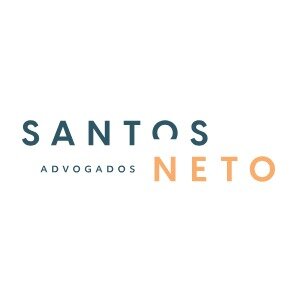Best Renewable & Alternative Energy Lawyers in São Paulo
Share your needs with us, get contacted by law firms.
Free. Takes 2 min.
List of the best lawyers in São Paulo, Brazil
About Renewable & Alternative Energy Law in São Paulo, Brazil
Renewable and alternative energy is a rapidly growing sector in São Paulo, Brazil. It encompasses various energy sources such as solar, wind, small hydropower, biomass, and biofuels, all intended to reduce environmental impact and promote sustainable development. In recent years, both statewide and federal regulations have encouraged the production and use of clean energy sources to reduce dependence on non-renewable fuels. São Paulo, as Brazil's economic powerhouse, plays a key role in implementing these changes, promoting innovation and offering incentives for companies and individuals to adopt renewable alternatives.
Why You May Need a Lawyer
Legal advice is often necessary for individuals or businesses involved in renewable and alternative energy projects in São Paulo. Some common situations where legal assistance may be required include:
- Negotiating and drafting contracts for energy production, supply, or distribution
- Navigating environmental and land use regulations for the installation of solar panels or wind farms
- Applying for governmental incentives, subsidies, or tax credits
- Handling disputes over property rights, grid connection, or licensing
- Ensuring compliance with national and local environmental standards
- Securing permits or licenses required for energy projects
- Addressing issues related to intellectual property on new technologies
- Dealing with regulatory authorities regarding inspections or enforcement actions
A legal expert can help ensure your project aligns with current laws and maximizes available benefits while minimizing risks and legal obstacles.
Local Laws Overview
The field of renewable and alternative energy in São Paulo is subject to both Brazilian federal and state-specific regulations. Key legal aspects include:
- State Policy on Renewable Energy: São Paulo has specific policies that support the use of renewable sources, encouraging investment in clean technologies and facilitating grid integration for distributed generation.
- Environmental Licensing: Projects must comply with environmental licensing requirements issued by the São Paulo State Environmental Agency (CETESB), which evaluates potential impacts and enforces mitigation measures.
- Net Metering and Distributed Generation: Provisions exist for consumers to generate their own electricity (such as with rooftop solar panels) and feed surplus power back into the grid, receiving credits on their electricity bills.
- Tax Incentives: There are state and municipal-level tax benefits for renewable energy equipment and installation, including reductions in ICMS (a Brazilian state value-added tax) and property tax incentives.
- Grid Access: Legal procedures govern how new renewable projects connect to the electricity grid, including requirements for technical adequacy and the negotiation of connection contracts with distributors.
- Land Use and Zoning: Municipal rules dictate where renewable projects like wind and solar farms can be developed, considering urban, rural, and protected areas.
- Compliance with ANEEL: Brazil’s National Electric Energy Agency (ANEEL) sets standards and procedures that must be followed state-wide, influencing licensing, grid integration, and tariffs.
Navigating these complex laws is crucial for anyone looking to start or expand renewable energy operations in São Paulo.
Frequently Asked Questions
What are the main types of renewable energy used in São Paulo?
The most common renewable sources in São Paulo are solar, wind, small hydropower, biomass, and biofuels. Solar energy, especially from rooftop photovoltaic systems, has seen significant growth in urban and rural areas.
Do I need a license to install solar panels at my home or business in São Paulo?
In most cases, residential and small business systems do not require a formal license, but they must meet specific technical and safety standards, and may need approval from the local electricity distributor. Large-scale systems or those in protected areas may require permits from municipal or state authorities.
What incentives are available for renewable energy projects?
São Paulo offers tax incentives such as ICMS reductions for the purchase of renewable energy equipment and installations. There may also be municipal programs offering further incentives or simplified licensing for small-scale generation.
Can individuals or businesses sell surplus energy back to the grid?
Yes. The distributed generation and net metering regulations allow surplus energy to be injected into the grid, generating credits that can offset electricity bills for up to 60 months.
What is required for environmental licensing of a renewable energy project?
Most medium and large-scale projects need an environmental license from CETESB. This involves submitting a detailed project report, impact studies, mitigation plans, and a public consultation process, depending on project size and location.
How are disputes about renewable energy contracts resolved?
Disputes are usually settled through negotiation, mediation, or arbitration, as stipulated in the contract. Otherwise, matters may be brought before state courts or regulatory authorities such as ANEEL.
Do renewable energy installations affect property taxes (IPTU) in São Paulo?
Some municipalities offer IPTU reductions for properties with certified renewable energy systems. It is important to verify specific programs and conditions with the local city hall.
What are the main regulatory authorities overseeing renewable energy in São Paulo?
Key authorities include ANEEL at the federal level and CETESB and the São Paulo State Secretariat for the Environment (SEMIL) at the state level. Municipal departments may also be involved for local approvals.
Are there special rules for wind and small hydropower projects?
Yes. In addition to general environmental and licensing requirements, these projects often require specific studies on wildlife, hydrology, and noise, and must meet additional land use and community consent thresholds.
How can legal risks be minimized when developing a renewable energy project?
Legal risks can be minimized by conducting thorough due diligence, ensuring all permits are secured, using well-drafted contracts, and regularly consulting with a lawyer experienced in environmental and energy law.
Additional Resources
If you are seeking more information or official advice, the following resources and organizations may be helpful:
- ANEEL - The National Electric Energy Agency, responsible for regulation and oversight of Brazil’s electricity sector
- CETESB - São Paulo State Environmental Agency, responsible for environmental licensing and enforcement
- São Paulo State Secretariat for Environment, Infrastructure, and Logistics (SEMIL) - Coordinates environmental and infrastructure policies
- ABEEólica - Brazilian Wind Energy Association, providing sector-specific information
- ABSOLAR - Brazilian Solar Photovoltaic Energy Association, supporting solar projects
- Local bar associations and legal aid clinics focusing on environmental law
- Municipal government offices for city-specific policies and incentives
These bodies can guide you on technical standards, programs, subsidies, or legal support in the renewable energy sector.
Next Steps
If you require legal assistance with renewable or alternative energy projects in São Paulo, consider the following:
- Gather all relevant documents related to your project, including property records, contracts, and permits
- Identify your legal questions or concerns - for example, permits, disputes, contracts, or regulatory compliance
- Contact a lawyer or law firm with experience in renewable energy and environmental law in São Paulo
- Schedule a consultation to discuss your situation and receive tailored legal advice
- Stay up to date by regularly checking regulatory updates from bodies like ANEEL and CETESB
Taking these steps will help protect your interests and ensure your renewable energy endeavors are successful and compliant with São Paulo's regulations.
Lawzana helps you find the best lawyers and law firms in São Paulo through a curated and pre-screened list of qualified legal professionals. Our platform offers rankings and detailed profiles of attorneys and law firms, allowing you to compare based on practice areas, including Renewable & Alternative Energy, experience, and client feedback.
Each profile includes a description of the firm's areas of practice, client reviews, team members and partners, year of establishment, spoken languages, office locations, contact information, social media presence, and any published articles or resources. Most firms on our platform speak English and are experienced in both local and international legal matters.
Get a quote from top-rated law firms in São Paulo, Brazil — quickly, securely, and without unnecessary hassle.
Disclaimer:
The information provided on this page is for general informational purposes only and does not constitute legal advice. While we strive to ensure the accuracy and relevance of the content, legal information may change over time, and interpretations of the law can vary. You should always consult with a qualified legal professional for advice specific to your situation.
We disclaim all liability for actions taken or not taken based on the content of this page. If you believe any information is incorrect or outdated, please contact us, and we will review and update it where appropriate.

















